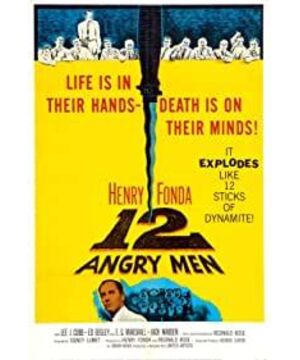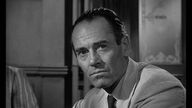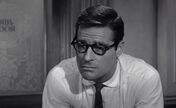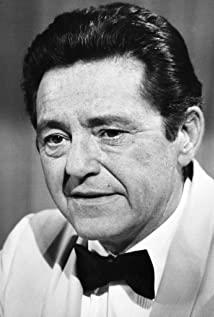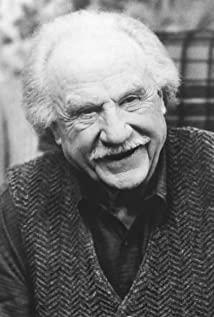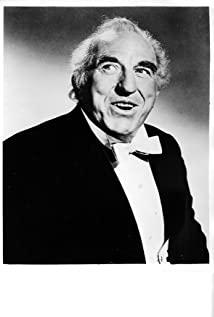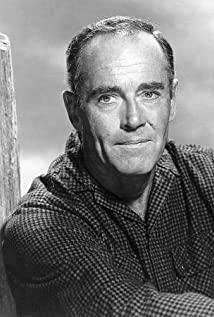First of all, the originality of "Twelve Citizens" is extremely limited in terms of the plot, and the changes in the plot can be summarized into three points: 1. Adding elements of the Cultural Revolution. The old man, who symbolized the older generation, recounted his experience of being criticized during the Cultural Revolution and he could barely survive. In the end, what gave him hope for survival was a sentence of encouragement from a stranger. So he says it's easy to convict a man with a slap of the tongue, while a simple help might save a life. In the original book, the reason for the old man's conversion to innocence was to see the young man persuade everyone with the power of one person, so he felt that this spirit was worthy of admiration. Second, the discourse at the bottom of society is out of place. The hawker who symbolized the market finally said, "I understand what the gentleman was talking about for a long time, don't you just want a reason, how about me? Someone listen to me." The reason for the change of this character in the original book is that he is really impatient , did not want to delay any longer, so made a change. Third, the xenophobia of the locals in Beijing. Indigenous natives are fed up with the chaos and competitive pressure of outsiders. My daughter couldn't go to university because of competition from candidates from other places. worry about her daughter's future. The rest, from the advancement of the plot clues to the symbolic characters, basically retain all the original plots. The Russian version has been adapted to a greater extent, and a motto appears at the end of the film; "The law is eternal and supreme. But what about mercy above the law?" The transition of the “author” was because he was persuaded to agree that the testimony of the old man was false. However, in "The Great Trial", the reason for the comrade of the Ministry of Railways to turn to innocence is because of a past event: his brother once took hostages in a desperate situation, but the police chief moved his brother, his brother, with love. The hostages were eventually released, drinking with the police chief, and the police didn't end up putting his brother behind bars. So he thinks we have to be tolerant and give that kid a chance. This kind of tolerance is very religious, and this kind of tolerance and religion intervening in secular thinking are not uncommon in Russian literature. Dostoevsky had a similar dialogue between the Karamazov brothers in "The Brothers Karamazov". Ivan Karamazov and Alyosha had a dispute over how to save the eldest brother, due to a belief Humanism, another belief in God, has thus produced many differences in method, and has also led to the confrontation of the two ideas. Although the debate on religious belief and rationalism has been discussed by countless people, such as Thomas Mann's direct and long description of a Jesuit and Freemason debate in "The Magic Mountain" to express his attitude, but more It is a purely rational inquiry. However, Dostoevsky's final conclusion is, "Love life, love beyond reason" There are many things you may not know, but to love. This reconciliation is actually emotional. And looking at the root of Dostoevsky's thought, he also believes that love and tolerance are the foundation of Russia's founding. In "Idiot", Duke Meshkin, in order to redeem the bullied Nastexie, even confuses religious love with the love of men and women. In the end, he hurt the kind and innocent Miss Aglaye, and at the same time, he failed to rescue Nastexie from Luo Guojing's hands, resulting in his final death. However, Dostoevsky is not denying it. It can be seen that he believes that Nastexie has completed self-redemption in the form of death. In "Crime and Punishment", Raskolnikov, on the way to pursue his pure rationality, found that he was neither "superman" nor violated the teachings of God, and finally served his sentence voluntarily under the inspiration of Sonia. The conclusion is that reason gives way to sensibility. The same sentiment was expressed in the grand trial, that is, systems, philosophies, and theories are important, but they are rigid, and the humanitarian spirit is the highest. The ending of "The Great Judgment" is also quite unexpected. The old soldier has long recognized that the child is innocent, and he knows that all this is the developer's conspiracy. But he believes that once the child is released, the child will be persecuted, so it is actually safer to keep him in prison. Therefore, I persuade everyone to put the child in jail first, and then work together to find out who the murderer is. However, everyone was silent at this time, even the person who turned the tide and persuaded everyone to be innocent did not want to take the responsibility of saving the child. Therefore, the old soldier pointed to the inferior pipes of the gymnasium and said that the pipes have not been repaired for 40 years, but they will not change in another 40 years, because Russians just don't care about others. This indictment is at least more than the original itself. In contrast, the localization of "Twelve Citizens" is really limited. Institutions, philosophies, and theories are important, but they are rigid, and the humanitarian spirit is the highest. The ending of "The Great Judgment" is also quite unexpected. The old soldier has long recognized that the child is innocent, and he knows that all this is the developer's conspiracy. But he believes that once the child is released, the child will be persecuted, so it is actually safer to keep him in prison. Therefore, I persuade everyone to put the child in jail first, and then work together to find out who the murderer is. However, everyone was silent at this time, even the person who turned the tide and persuaded everyone to be innocent did not want to take the responsibility of saving the child. Therefore, the old soldier pointed to the inferior pipes of the gymnasium and said that the pipes have not been repaired for 40 years, but they will not change in another 40 years, because Russians just don't care about others. This indictment is at least more than the original itself. In contrast, the localization of "Twelve Citizens" is really limited. Institutions, philosophies, and theories are important, but they are rigid, and the humanitarian spirit is the highest. The ending of "The Great Judgment" is also quite unexpected. The old soldier has long recognized that the child is innocent, and he knows that all this is the developer's conspiracy. But he believes that once the child is released, the child will be persecuted, so it is actually safer to keep him in prison. Therefore, I persuade everyone to put the child in jail first, and then work together to find out who the murderer is. However, everyone was silent at this time, even the person who turned the tide and persuaded everyone to be innocent did not want to take the responsibility of saving the child. Therefore, the old soldier pointed to the inferior pipes of the gymnasium and said that the pipes have not been repaired for 40 years, but they will not change in another 40 years, because Russians just don't care about others. This indictment is at least more than the original itself. In contrast, the localization of "Twelve Citizens" is really limited.
Citizen's rights, the meaning of the word "citizen", can only be counted as a citizen if he understands his own rights, otherwise it can only be counted as an incomplete person. "Conversely, we find that those who do not have a strong sense of what is just for themselves, also lack sufficient sense of what is just for their fellow citizens. This has long been accepted. As a contemporary writer Said: A tyrant is nothing but a slave turned inside out. . . A freed slave surpasses all other (slave) masters in cruelty and oppression.” The current state of Chinese society is that citizens generally lack the spirit of political participation, although not only Only the Chinese are like this, and there are such characters in "Twelve Angry Men", but even more so in China. I have absolutely no idea what the so-called rule of law is, and even more so when it comes to "jurors" and "common law", so in reality, if such a discussion were organized, would anyone put in so much emotion until they told themselves It is a questionable question to cry bitterly in the past and present life.
However, the most important thing for a film is its spiritual core. For the legal film "Twelve Angry Men", its essence is a group of ordinary people who, under the guidance of reason, rely on their own sense of civic responsibility, and use legal means to Change another person's fate to achieve fairness and justice. However, this spirit is dispelled in "Twelve Citizens". The background of "Twelve Citizens" is that parents participate in a simulated trial for their children's make-up exams in law school. It is completely impossible to see the value of this discussion. There is no sense of ritual and heavy sense of mission in the original work. The original is heavy, but "Twelve Citizens" is light. Decisions in Twelve Angry Men can affect a person's life or death. So you can use the phrase "we pass it, sentence a person to death and send him to the electric chair". Because everyone thinks that politics and law are far away from us, they can make rash comments. However, when we really carry a person's destiny, our hands are often trembling, and this sentence will give people a lot of pressure. And "Twelve Citizens" can only say that this person is dead in your heart. But such words cannot really convince a person in everyday life. Ask yourself, who would really try to overturn a criminal conclusion that both the media and the police believe to be guilty and seems to have solid evidence in a formal discussion just for the sake of making up the test for the child. "Twelve Citizens" is more like a drama, and its technique is to reveal some popular social issues through a non-existent form (jury discussion). "Twelve Angry Men" is based on the theme of saving innocent people by adding class contradictions, and the whole point of "Twelve Citizens" is to reveal some social contradictions. However, these social contradictions are limited by the film's plot and cannot be Adequate discussion merely raises these issues without systematic reflection and does not provide a reasonable solution.
The appearance of the prosecutor in the film is even more ironic. Regarding the law, a generally accepted sentence is "a judgment, no matter how legal it is, if it does not conform to the common sense judgment of the majority of the people, then there must be something wrong with the judgment." For example, the Xu Ting case. The most important significance of the jury system is to inject the rationality of life into the court full of legal rationality, and to avoid the transition of people who have been engaged in legal work for a long time to theorize and one-sided life. There is also a juror system in China, although its effectiveness is not as good as that of the West, but even so, there are requirements: jurors must be non-law practitioners, and neither public security supervisors nor lawyers can serve as jurors. However, in "Twelve Citizens", he took on the role of turning the tide and persuading everyone to switch to innocence and finally returned to pick up the lost documents to prove his identity as a prosecutor. However, the appearance of this prosecutor's identity is a complete irony, because this prosecutor persuaded everyone to vote for the suspect's innocence, because it is reasonable to assume that there is no such prosecutor, everyone will swarm to convict the suspect and pronounce the sentence. death penalty. Is it also an attempt to show that the Chinese people are blind. If China implements the jury system and there is no state staff prosecutor, then a person will be sentenced to death?
Finally, at the end, the ending of "Twelve Citizens" is peaceful, and reconciliation is achieved in the afterglow of the setting sun. However, does this overhead discussion really achieve the effect of making up for social rifts? Maybe people representing all walks of life will have a deeper understanding, but this understanding is superficial, such as being able to hold two bowls of instant noodles. The hawker who ran and didn't let the soup spill unexpectedly fell while riding his bike through a puddle of water, and the security guard who had been chasing him helped him up, but even if he was lifted up today, the hawker would sell things at will in the school tomorrow , the security will still receive the above instructions to drive the hawker away. No matter how much a taxi driver reveals his feelings to others, he can't persuade his children to forgive himself, and he can't get back the years he lost. The natives in Beijing are still worried about whether their daughters will eventually be able to go to university, and when faced with the predicament of not being able to go to college, they will still curse the competition brought by outsiders. Comparing the ending of "Twelve Angry Men", "Twelve Angry Men" finally ended with the jurors leaving. The camera shot was the steps of the foreign minister of the court. The jurors who could not see their faces scattered, even the protagonist was only a mere juror. A brief shot was given. Everything is dust and dust, and there is no reunion or interview with the media or a heroic return to save the world. It even makes people think, stumped, a hero who just fought with Confucianism and saved a life is so obscure, no one pays attention. However, in the next moment, there will be a sudden reaction. On the surface, "Twelve Angry Men" portrays a hero who fights with Confucianism. In essence, it shows the proud judicial system of the United States. The jurors are not heroes, they are just ordinary "citizens". In countless trials with jurors, they knew that no one was paying attention, but they still adhered to a strong sense of responsibility. Find the truth in the fog and evidence, and give justice to the parties.
View more about 12 Angry Men reviews


